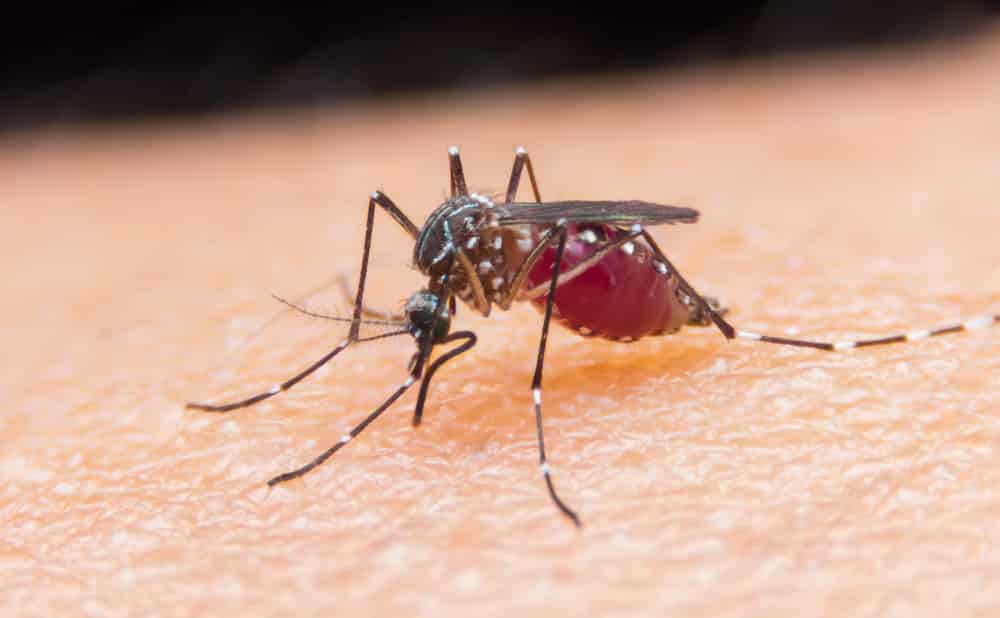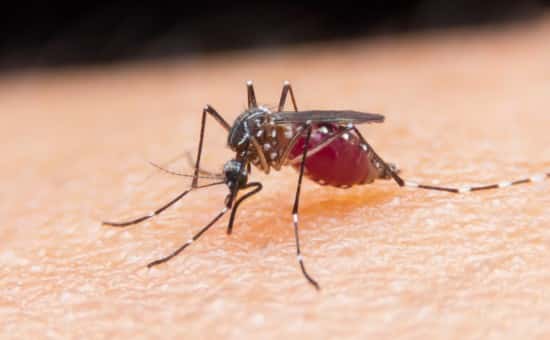 Zika virus freaking you out? It’s no wonder. Because it causes babies to be born with smaller heads. Which is freaky stuff. And of course, the media is all over it, because feeding the public panic leaves them gasping for more.
Zika virus freaking you out? It’s no wonder. Because it causes babies to be born with smaller heads. Which is freaky stuff. And of course, the media is all over it, because feeding the public panic leaves them gasping for more.
What We Know
By now we know that Zika virus is a mosquito-borne virus that has spread to 38 countries, 33 of them in Latin America. And the results are just awful: thousands of babies born with microcephaly, a birth defect in which babies are born with abnormally small heads.
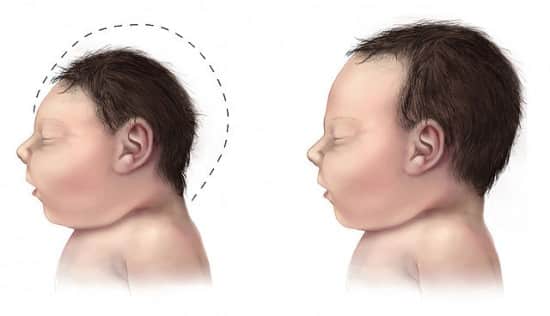
The Zika virus itself, is usually not so bad. In fact, some people never even know they have it. Which is a problem, because if you don’t know you have it, you don’t bother to stay away from other people. This is one of the ways Zika virus has managed to spread so far and wide, affecting so many pregnant women and their unborn children.
So obviously, Zika virus is really bad for pregnant women and their babies. And if we want to be good, moral people, we should be doing everything in our power to slow the spread of Zika virus, since it is so harmful to babies in the womb. The upshot? We should all avoid traveling to places where Zika is especially active, if at all possible. And we should be working to avoid mosquito bites.
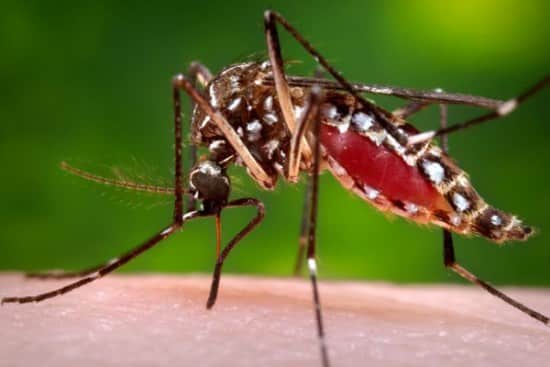
Zika Virus: Going Somewhere?
As for figuring out whether or not it’s safe to travel to an intended destination, the Centers for Disease Prevention and Control (CDC), has a great utility to help you figure it out along with other helpful information for travelers. You can find all of that HERE.
You also want to do what you can to avoid mosquito bites, so you don’t contract Zika virus and become a carrier, yourself. There’s a lot you can do to protect yourself against mosquito bites.
Avoid Mosquito Contact
One of the main ways to avoid mosquito bites to limit contact with them by:
- Avoiding the out of doors during the times mosquitoes are most active, from dusk until dawn
- Fixing any tears in window screens, screen doors, and tents
- Use mosquito netting over beds, strollers, cribs, and for sleeping out of doors
Use Insect Repellent
The three most effective insect repellents on the market are: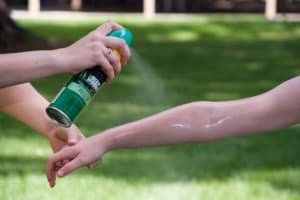
- DEET
- Icaridin (picaridin)
- Oil of lemon eucalyptus (a plant-based compound)
Of these three repellents, DEET has the most staying power, but if you’re going to be out of doors for a shorter amount of time, you may not need something so long-lasting. Whatever type of repellent you decide on, if you use repellent in spray form, apply it out of doors and away from food.
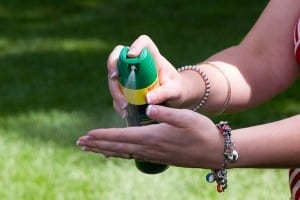
Using sunscreen, too? Put that on first and wait 20 minutes before you use the repellent. Don’t buy a combination sunscreen/repellent product. Sunscreen needs to be reapplied at regular intervals, while you should limit how much repellent you use. If you buy the combination product, you may end up using too much repellent.
Use Repellent With Caution
While using repellent is necessary to help prevent the spread of Zika virus, one should be careful to use it with caution. Repellent is thought to be safe except in a few cases. Here are some exceptions to keep in mind:
- Avoid using DEET on newborns before the age of 2 months
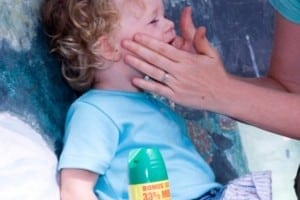
- Keep DEET and icaridin away from the faces and hands of young children
- Don’t use oil of lemon eucalyptus for children below the age of 3
- Don’t apply repellent to skin that will be covered by clothing
- Avoid using repellent on irritated skin or open wounds (burns, sunburns, cuts and scrapes, rashes)
- Once you’re back indoors, wash well with soap and water to remove leftover traces of repellent
Don’t Neglect Clothing And Outwear
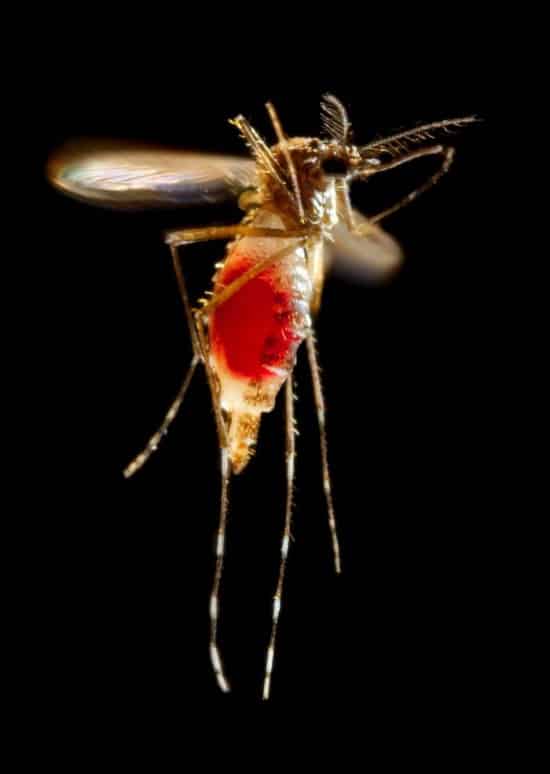
Use permethrin on your clothing. Permethrin acts as both an insect repellent and an insecticide. You apply it to your clothing and outerwear, never to your skin. Permethrin-treated clothing and gear gives you an extra layer of protection against mosquito bites.
Cover Up
Use clothing to cover your skin as much as possible by wearing:
- Light colored clothing
- Socks
- Shoes with closed toes (not sandals)
- Long pants (tuck the hem into your socks, if possible)
- Long-sleeved shirts
- A hat that covers ears and neck, some also have mosquito netting to cover the face
Keep Mosquitoes Outside
Keeping mosquitoes out of your home is another important part of avoiding mosquito bites and the Zika virus. What you want to do is make the environment outside of your home unfriendly to mosquitoes. Mosquitoes need standing water to breed. Eliminating any sources of standing water in the areas around your home, is a good way to prevent mosquitoes from getting inside your home. Here are some tips on eliminating sources of standing water around your home:
- Change the water in birdbaths at least once a week
- Keep roof gutters free from debris
- Empty children’s swimming pools often
- If you store empty flowerpots outside, turn them upside down
- If you have a barbecue pit, make sure you drain it after a rainfall
- Don’t keep old tires out of doors, since water can collect inside them
Remember: you may not be pregnant, but that’s no reason not to care about the Zika virus. Don’t let the mosquitoes get to you, so you can help keep other people safe. It’s all about having compassion and being a citizen of a kinder, more caring world.
